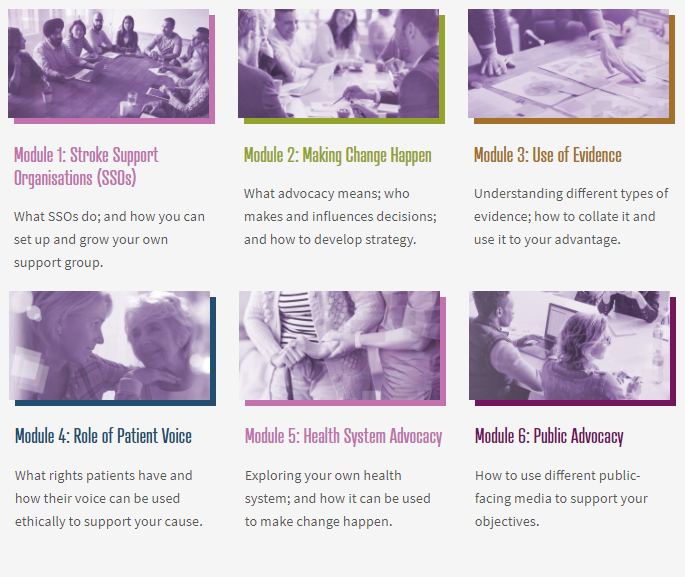
Mar 30, 2020
Author: Jelena Misita, SAFE Awareness and Advocacy Manager
As we witness an unprecedented global public health crisis, many of us are forced to #stayhome for the greater good and stop Covid-19 from further spreading.
In these extraordinary times, there are groups of people who became even more vulnerable than they were. The stroke survivors and their loved ones for sure make one of these groups.
To be honest, the situation wasn’t good to begin with. There are around nine million stroke survivors currently living in Europe, with a support that is often undefined, fragmented or non-existent in majority of European countries, as shown in previous SAFE research projects, the Burden of Stroke Report (2017) and the Economic Impact of Stroke Report (2019).
Recent advancements in medicine enabled more lives to be saved in the acute phase of stroke, meaning that more and more stroke survivors will get a chance to live another 10, 20, 30 years or even longer. However, survivors and their families may face decades of existence in which they are largely reliant on self-management. The problems caused by stroke-related disabilities are often complicated by other diseases and additional issues related to their internal and external environment, self-care and self-esteem, their role as a spouse, parent, employee, and so on.
If you add the Covid-19 crisis and its implications to an already long list of difficulties that stroke survivors face every day- it may be just too much for them to handle. If whole hospitals are being turned to Covid-hospitals, what is happening with people who have a stroke? We learned that stroke doesn’t choose the time or place. It doesn’t discriminate and it can happen to anyone at any time, even in the Covid-19 most affected areas. Where does that leave the person who suffers a stroke? How likely would it be for this person to receive the necessary treatment in these conditions?
To get answers to these and many other questions, the European stroke community needs more skilled stroke advocates, who would be able and willing to take a stand and advocate for better stroke prevention, treatment and especially for better life after stroke conditions, because, as SAFE’s Board member and stroke survivor Grethe Lunde said, a saved life must also be lived.
If you feel it within you, if you want to make a change, but don’t know where to start- we have a solution for you. It is called SSOFT- the Stroke Support Organisation Faculty Tool.
SSOFT is a free platform. It provides knowledge and training on how to make effective advocacy activities and campaigns to deliver positive change at a local and national level on stroke prevention, treatment and care. This innovative eLearning platform includes six modules that provide information on:
Module 1: Stroke Support Organisations (SSOs)
Module 2: Making Change Happen
Module 3: Use of Evidence
Module 4: Role of Patient Voice
Module 5: Health System Advocacy
Module 6: Public Advocacy
In the end, why not using this period of isolation and social distancing to improve our skills and be better prepared for the changed world when the crisis is over?
We know that stroke survivors and their families will be thankful for it.
It’s up to you, click here, register and become one of us.
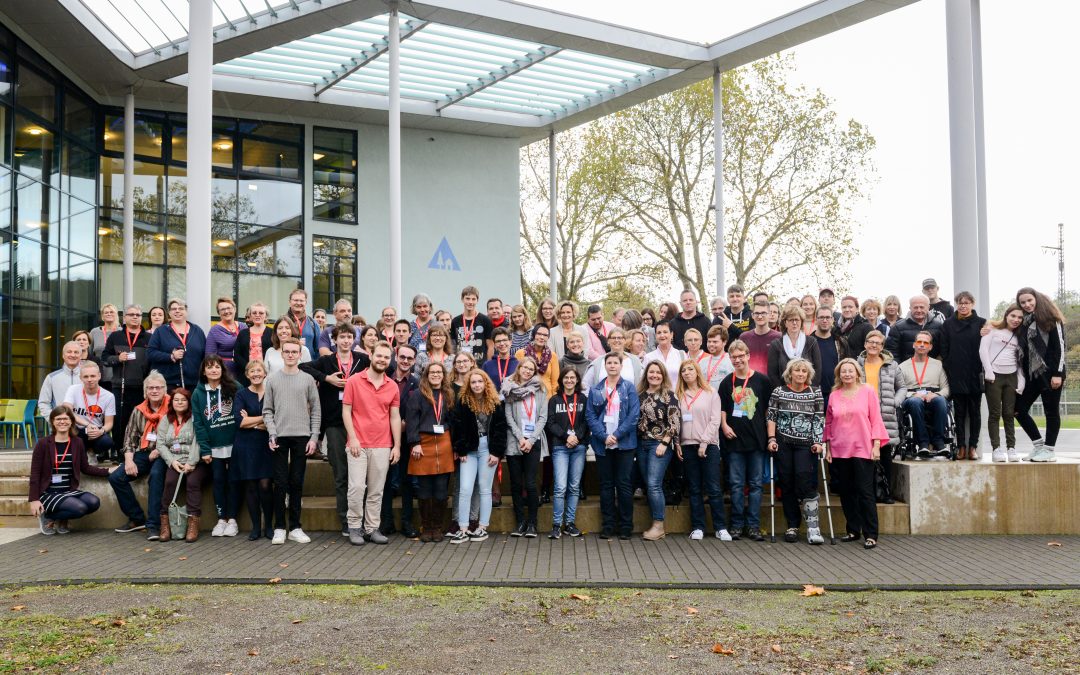
Jan 15, 2020
We are delighted to share with you a report from the German Stroke Foundation about their key activities between July and December 2019. We hope it will inspire you and your organisation for activities in your country.
World stroke day: “Every step counts”
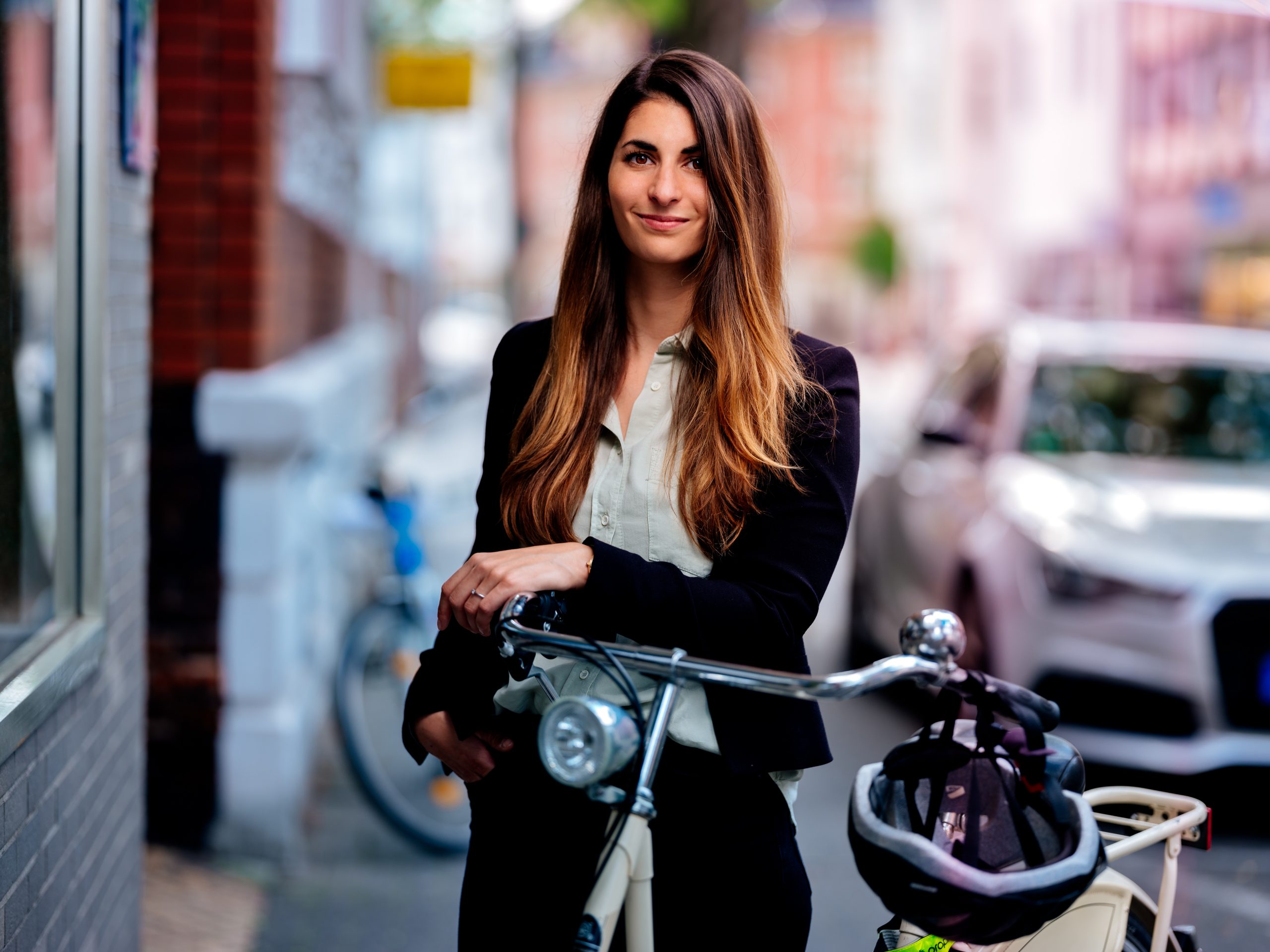
Miriam_Mashkoori, World Stroke Day 2019
Statistically 25 percent of the worlds population gets a stroke. This also means: 3 out of 4 people do not get a stoke!
Around World Stroke Day (October 29th) the German Stroke Foundation raised awareness for stroke-prevention with the slogan “every step counts”. Many papers published the press release with tips for a healthier lifestyle, radio-stations aired an interview with the foundations prevention-expert Miriam Mashkoori. On Facebook people explained how they lost weight or managed to quit smoking to motivate other Facebook-users to live a healthier life.
Summer Camp for children and their families
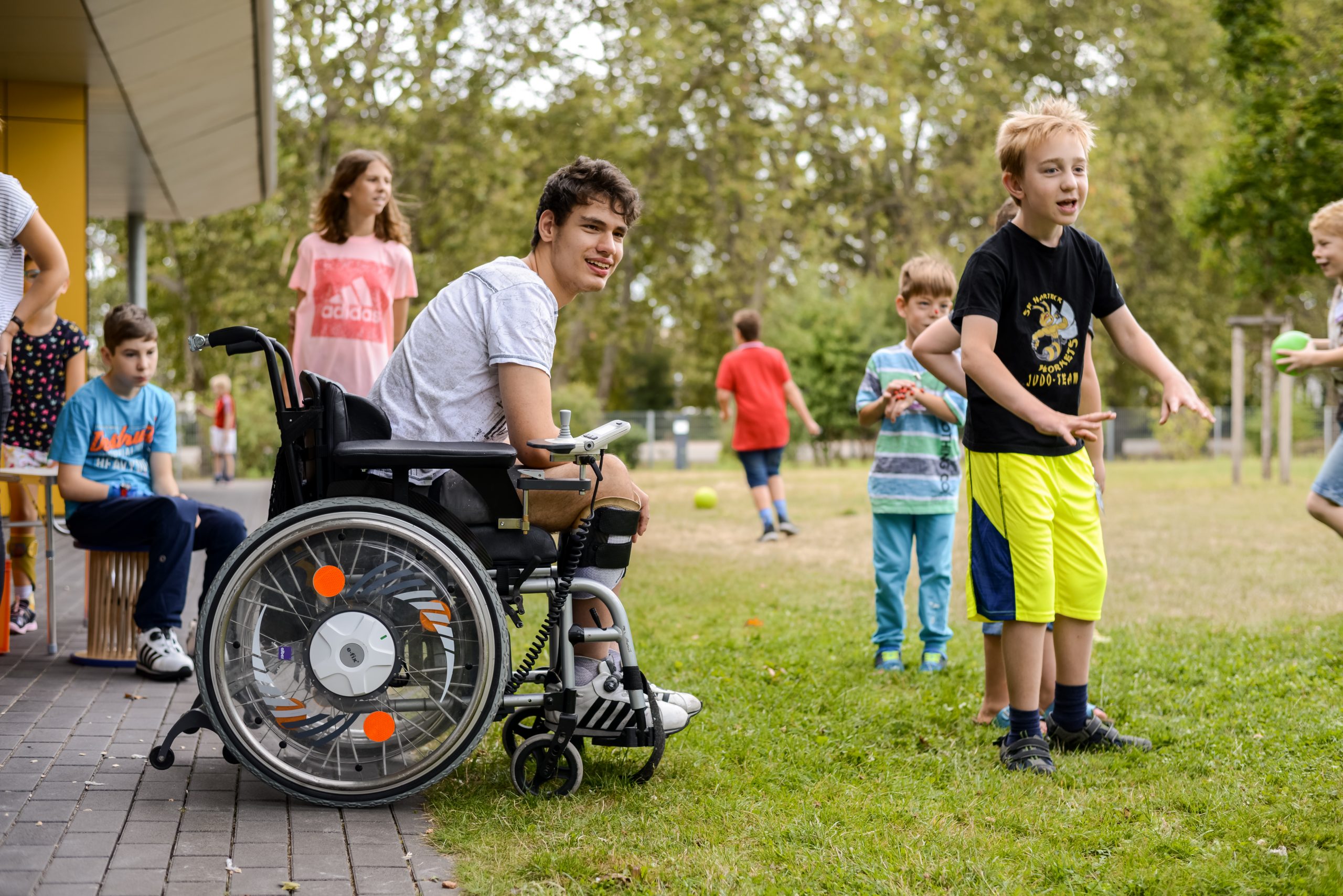 How will my child develop? How will it do in Kindergarten or school? How do we cope with social challenges and which therapies are best with for our child? The diagnosis “stroke” raises many questions – especially when a child is affected. The three day “Summer Camp” offered families with a child affected by stroke an opportunity for an informative and fun-filled weekend. Experts answered questions, psychologists helped developing new perspectives, singer Patricia Kelly gave an exclusive concert and former world-class Wrestler Alexander Leipold offered sport-activities for the children.
How will my child develop? How will it do in Kindergarten or school? How do we cope with social challenges and which therapies are best with for our child? The diagnosis “stroke” raises many questions – especially when a child is affected. The three day “Summer Camp” offered families with a child affected by stroke an opportunity for an informative and fun-filled weekend. Experts answered questions, psychologists helped developing new perspectives, singer Patricia Kelly gave an exclusive concert and former world-class Wrestler Alexander Leipold offered sport-activities for the children.
Tea Time with Liz Mohn
The foundation´s president and founder Liz Mohn invited stroke survivors and supporters of the foundation for a Tea Time. She met and spent a wonderful afternoon with people who were especially engaged in our foundation´s activities.
Workshop for young stroke-survivors
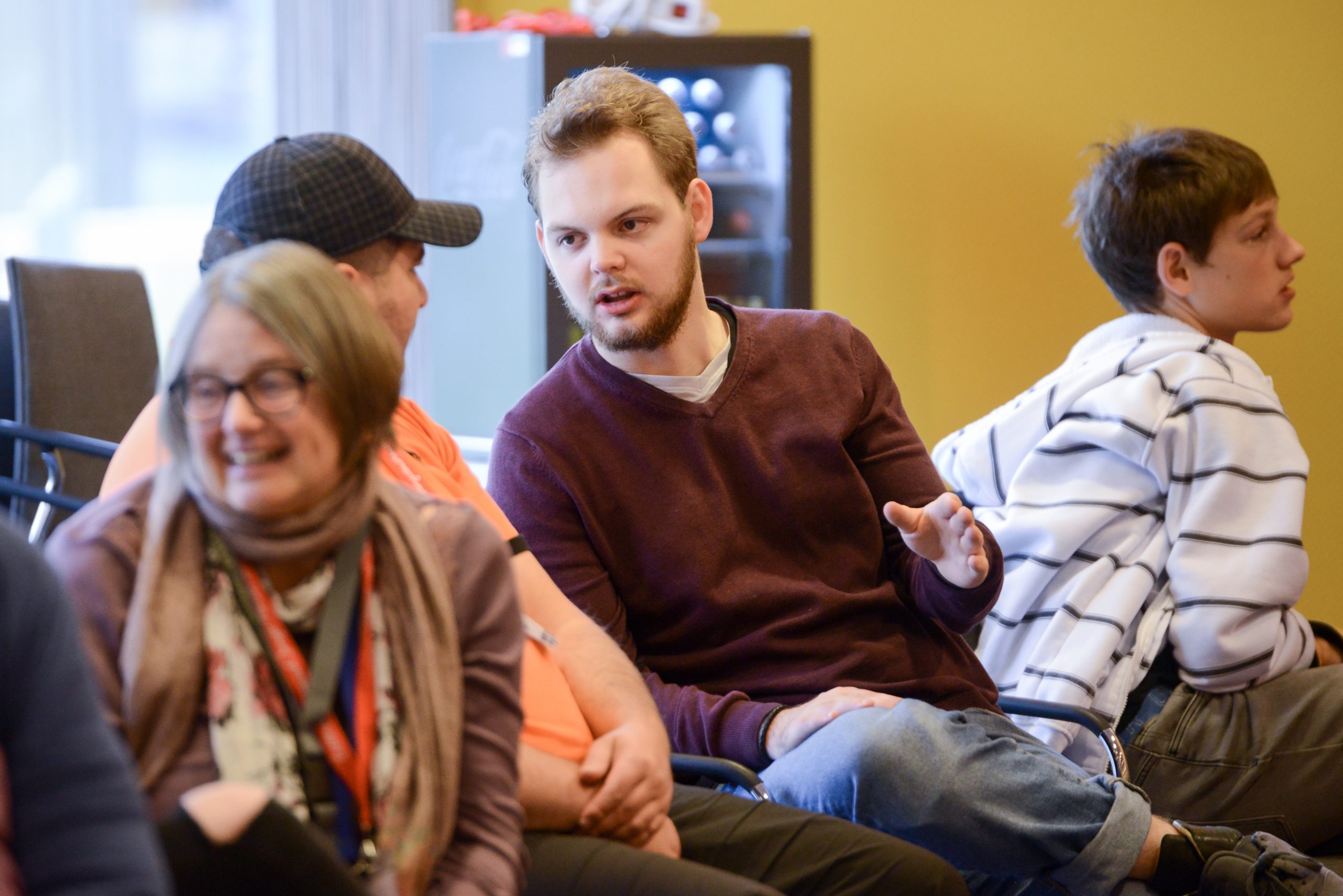 A stroke affects every aspect of life. Young survivors are even in a special situation. They want to return to work, build or maintain relationships and live an independent life – which is not always possible. In a four-day workshop they had the opportunity to talk to psychologists and doctors and to exchange their own experiences. Word-class Mountainbiker Peter Schermann talked about his return into sports after his stroke.
A stroke affects every aspect of life. Young survivors are even in a special situation. They want to return to work, build or maintain relationships and live an independent life – which is not always possible. In a four-day workshop they had the opportunity to talk to psychologists and doctors and to exchange their own experiences. Word-class Mountainbiker Peter Schermann talked about his return into sports after his stroke.
Public talk about reintegration in working life
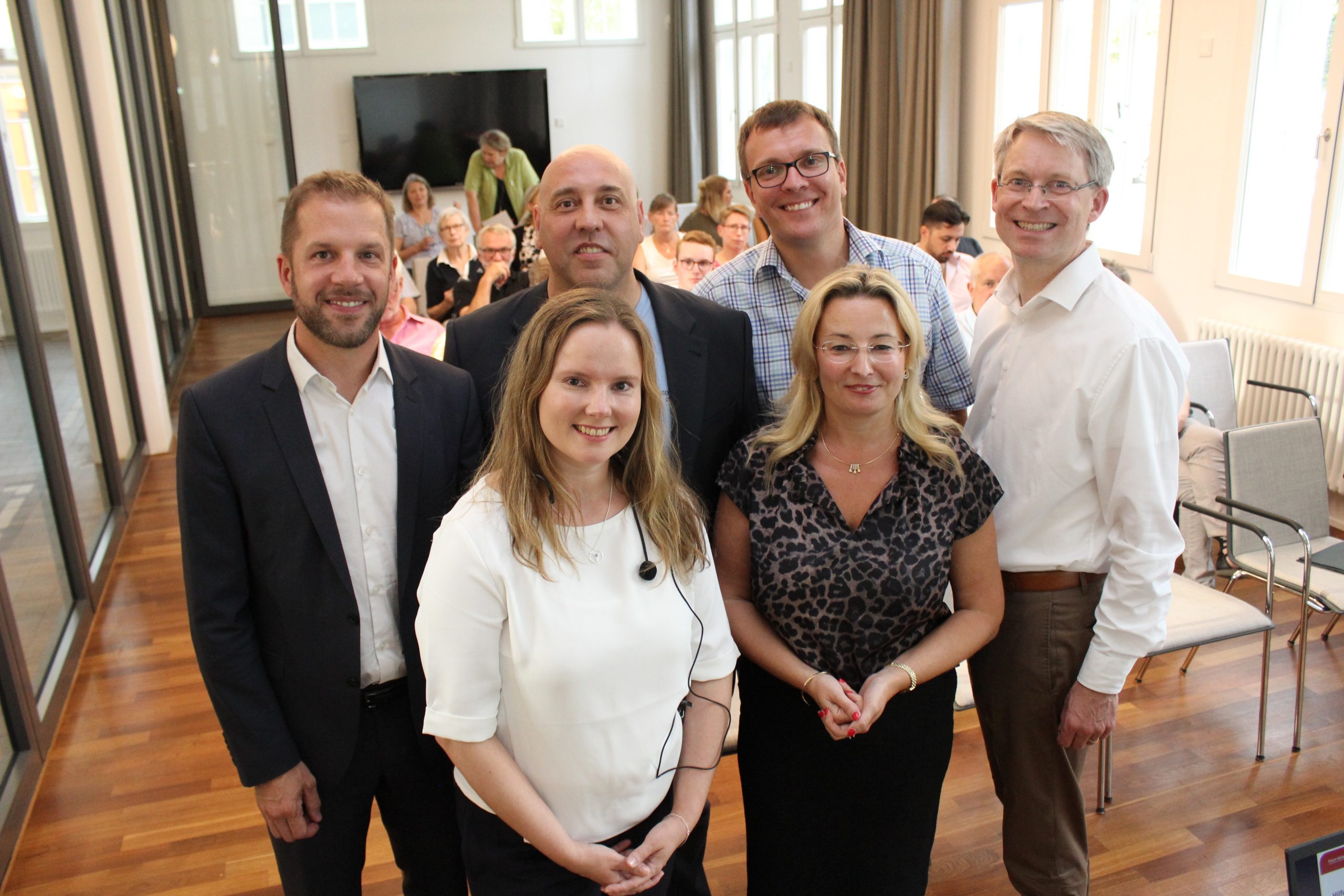
After an accident or an illness it is often hard to return to work. Some might not be able to work full hours anymore, others might have to find a completely different job. A staff member of the employment office, an integration expert and a coach for job applications informed about opportunities to get back to work at the event “Forum Schlaganfall (Stroke Forum)” at the German Stroke Foundation in Gütersloh.
Politican Andrea Milz visits the Stroke Foundation
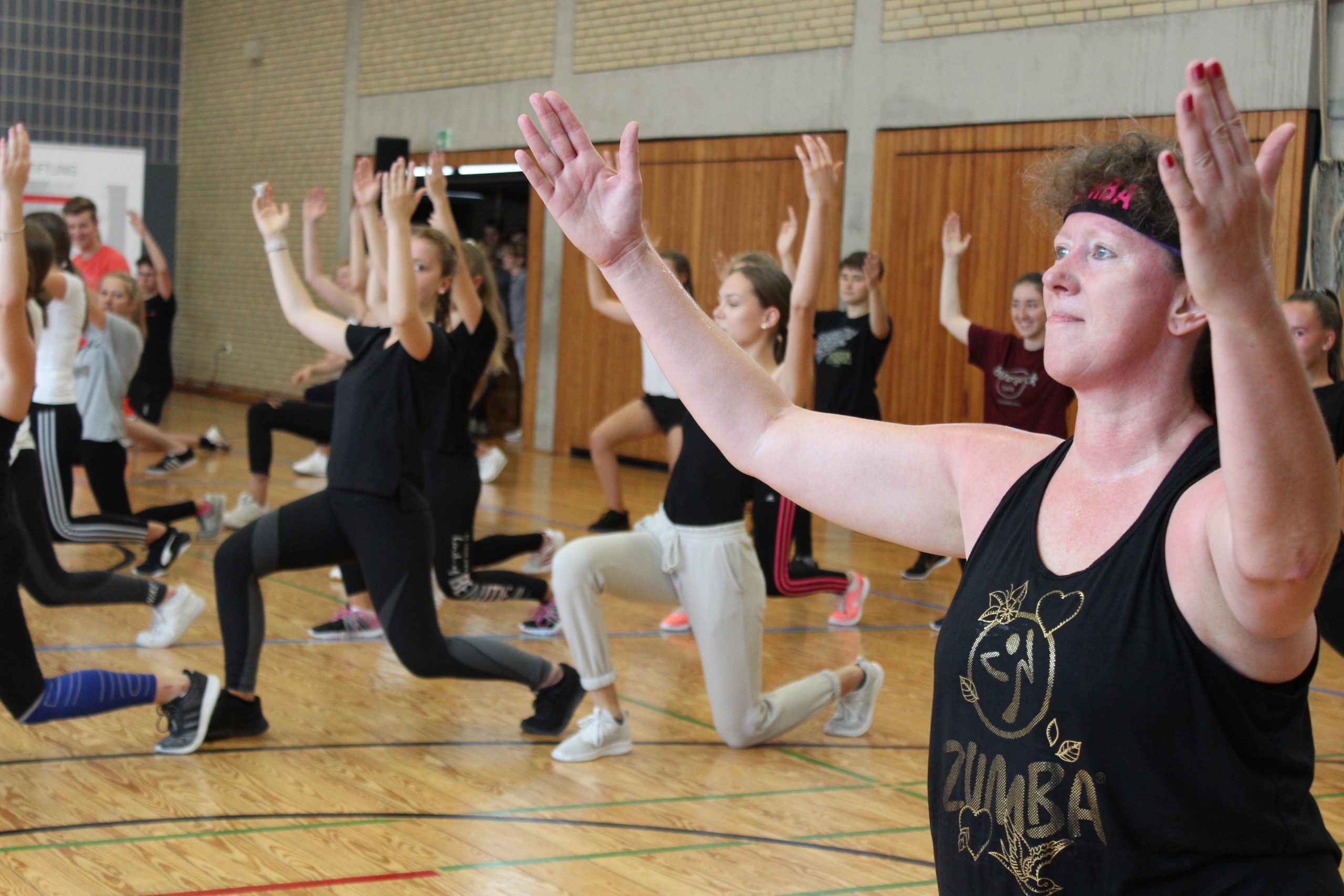
Andrea Milz
The North Rhine Westphalian secretary of state for sports and volunteering, Andrea Milz, visited the German Stroke Foundation to talk about the volunteer-project “stroke helpers”.
As a certified Zumba-trainer she also gave a Zumba-lesson at the local High School. The High School offers optional medicine-classes for its students and cooperates with the foundation.
Speakers of self support groups meet
Speakers of self support groups do not only organise meetings and events for their groups. But they also need to know about relevant changes in law, new therapies or other important aspects about stroke. This is why the foundation offers workshops for speakers of self support groups all over Germany.
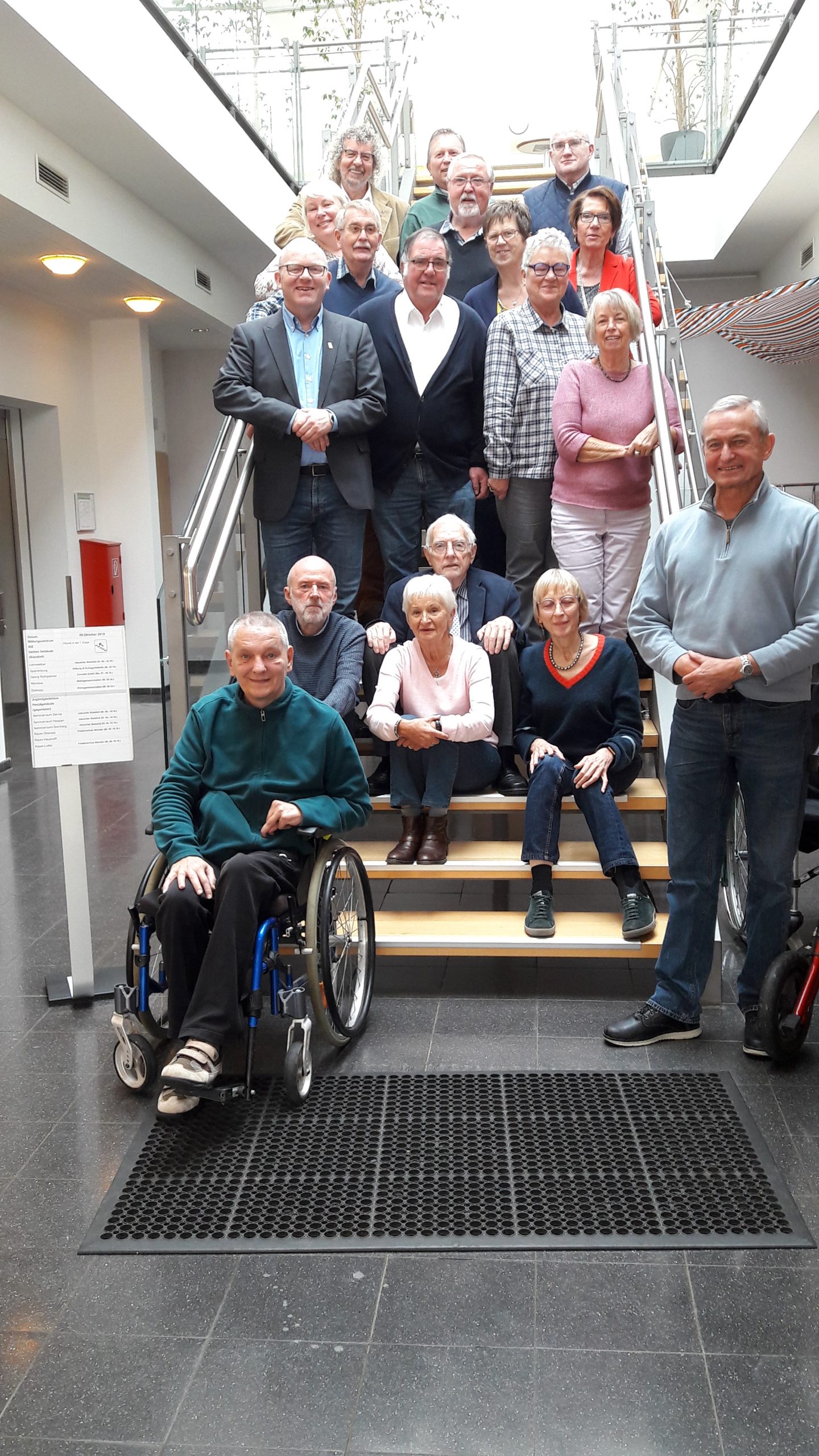
Cooperation with TV-show “Unter uns” ends
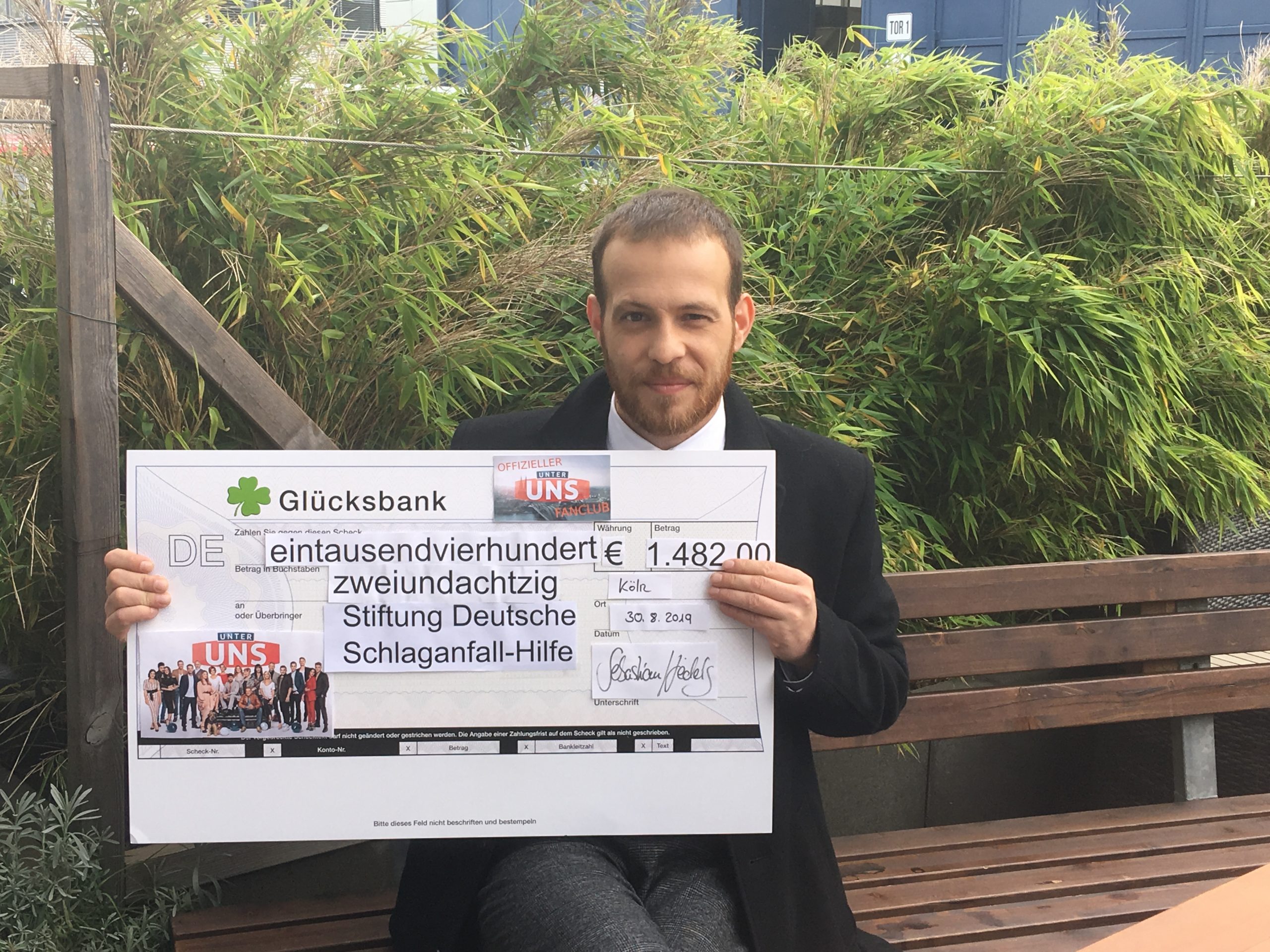
Patrick Müller
One of the main characters in the popular TV series “Unter uns” has had a stroke in one of the episodes in May. According to the storyboard lawyer Tobias, played by actor Patrick Müller, suffered from hemiplegia and severe speech problems. The team and cast of “Unter uns” cooperated with the German Stroke Foundation in order to create a realistic storyline. The cooperation know officially ended. The fan-club donated more than 1400 Euros for the foundation.
Experts meet to learn about stroke in children
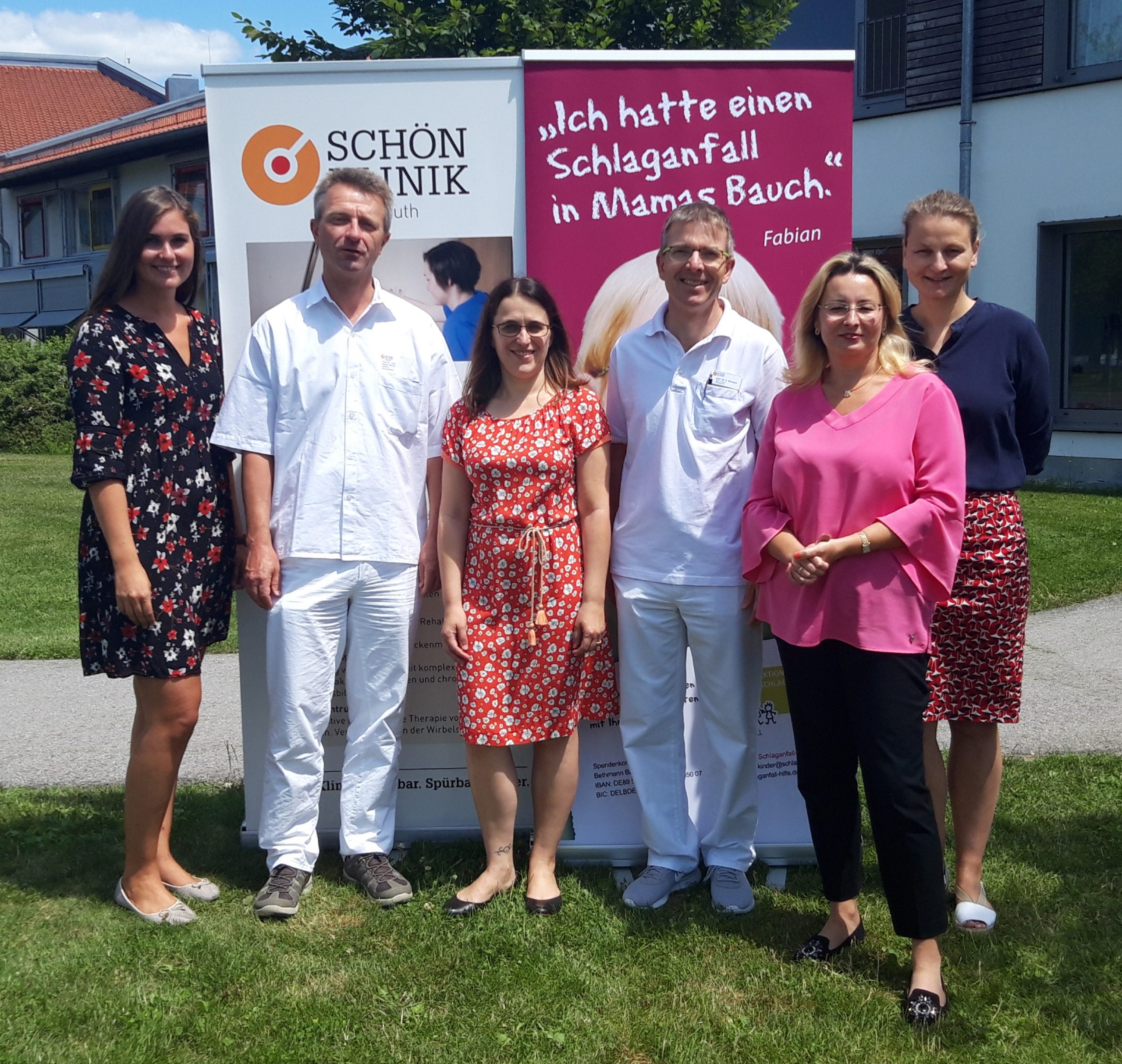 Not many people know that children can have a stroke. Even experts like podiatrists or therapists often don’t have sufficient information about the topic. The German Stroke Foundation wants to change this by inviting experts to learn more about child stroke. More than 40 doctors and other experts met in Bavaria in 2019.
Not many people know that children can have a stroke. Even experts like podiatrists or therapists often don’t have sufficient information about the topic. The German Stroke Foundation wants to change this by inviting experts to learn more about child stroke. More than 40 doctors and other experts met in Bavaria in 2019.
Photos: German Stroke Foundation, 2019
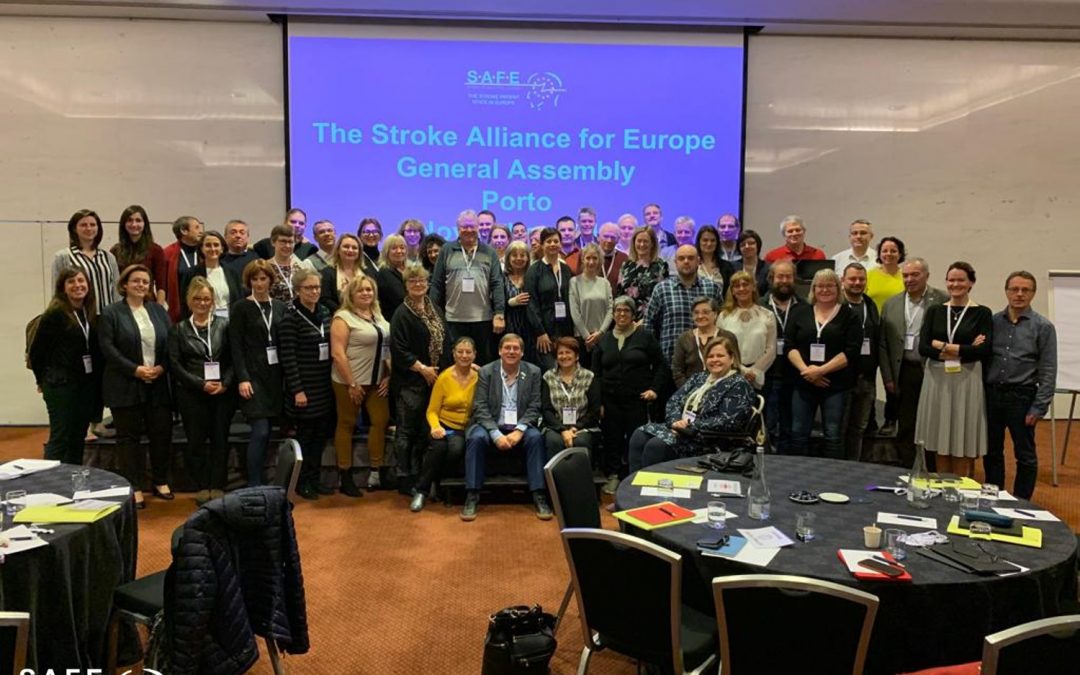
Nov 29, 2019
„This year’s Working Conference was a little different compared to others, because every single delegate who registered actually came to the conference“, said Jon Barrick, SAFE President in his opening remarks of the most important SAFE annual event.
More than 80 delegates from over 30 European countries gathered in Porto, Portugal for this year’s conference and General Assembly.
The Working Conference agenda covered important topics ranging from SAFE’s advocacy work and workshops about growing a stroke support organisation, to vitally important day-to-day topics such as stroke and intimacy, fatigue after stroke and travelling if you are a stroke survivor.
On the first day of the Working Conference SAFE’s most important project in 2019 was presented – The Economic Impact of Stroke in Europe Report.This pivotal piece of research into the health economics of stroke in Europe was presented by Ramon Luengo Fernandes, research lead on behalf of the University of Oxford and Gary Randall, SAFE’s Research Manager and volunteer.
“The Economic Impact of Stroke in Europe Report provides persuasive arguments for stroke to be considered as an investable proposition. We hope we have brought enough hard evidence for our partners, medics, researchers and policy decision makers to see the clear potential for investment in stroke prevention, treatment and life after stroke as a way for saving more lives and reducing future costs” said Arlene Wilkie, SAFE Director General and the chair of this session.
The whole session with the presentation of the results was live tweeted and shared via SAFE Facebook page.
You can see the agenda of the SAFE Working Conference here.
The second day was about practical information on how to grow an SSO, presented by Sarah Belson from the World Stroke Organisation. ‘How to develop your organisation’ is of course a huge topic, but having spoken to a number of you I recognise that some of the most valuable learning you take from SAFE, is hearing from the experience of other SSOs” said Sarah Belson. She presented four case studies from the Cyprus, Finland, Poland and Israel SSOs.
SAFE’s General Assembly was held on 29th November. Apart from voting for very important updates in the SAFE Constitution, new members were welcomed to the Board and three new organisations joined SAFE- Moždani Val from Croatia, Ukrainian Anti-Stroke Association and Turkish Cerebrovascular Diseases Society. The SAFE Assembly voted with much regret for the expulsion of the Austrian SSO, as this member failed to fulfill its membership duties.
There were three new candidates for the Board and three candidates from the previous Board were standing for re-election. After expressing unanimous decisions for each candidate, delegates’ vote lead to SAFE having the full Board in 2020. The new Board consists of 11 members:
Jon Barrick, SAFE President, UK
Anita Arsovska, Vice President, North Macedonia
Marina Charalambous, Secretary, Cyprus
Chris Macey, Treasurer, Ireland
Grethe Lunde, Norway
Ivan Milojević, Serbia
Derya Uluduz, Turkey
Dmytro Gulyayev, Ukraine
Hrvoje Jurlina, Croatia,
Hariklia Proios, Greece
Pnina Rosenzweig, Israel
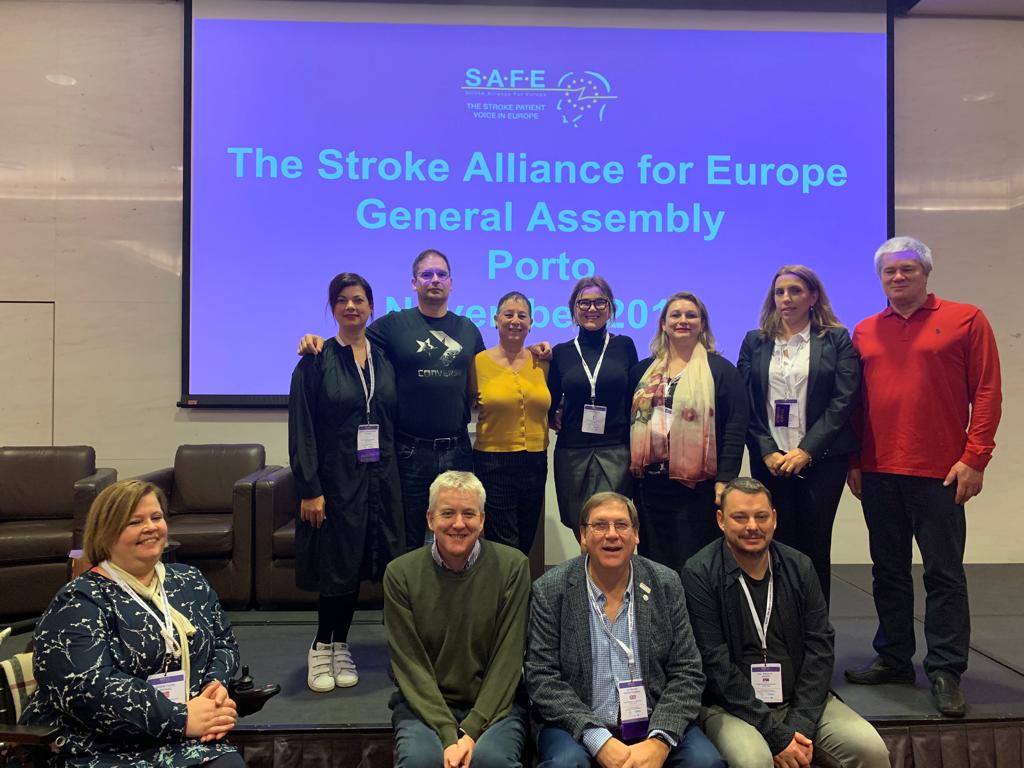
After 15 amazing years of serving #SAFE, Markus Wagner from the German Stroke Foundation Stiftung Deutsche Schlaganfall-Hilfe was presented with a token of our appreciation for all of his hard work as a SAFE Board member, Past-President and a VP. We really appreciate Markus as a colleague and a friend and we hope he will continue to share his experience and ideas with SAFE.
The next General Assembly will be held on 20th November 2020 in Barcelona, Spain.
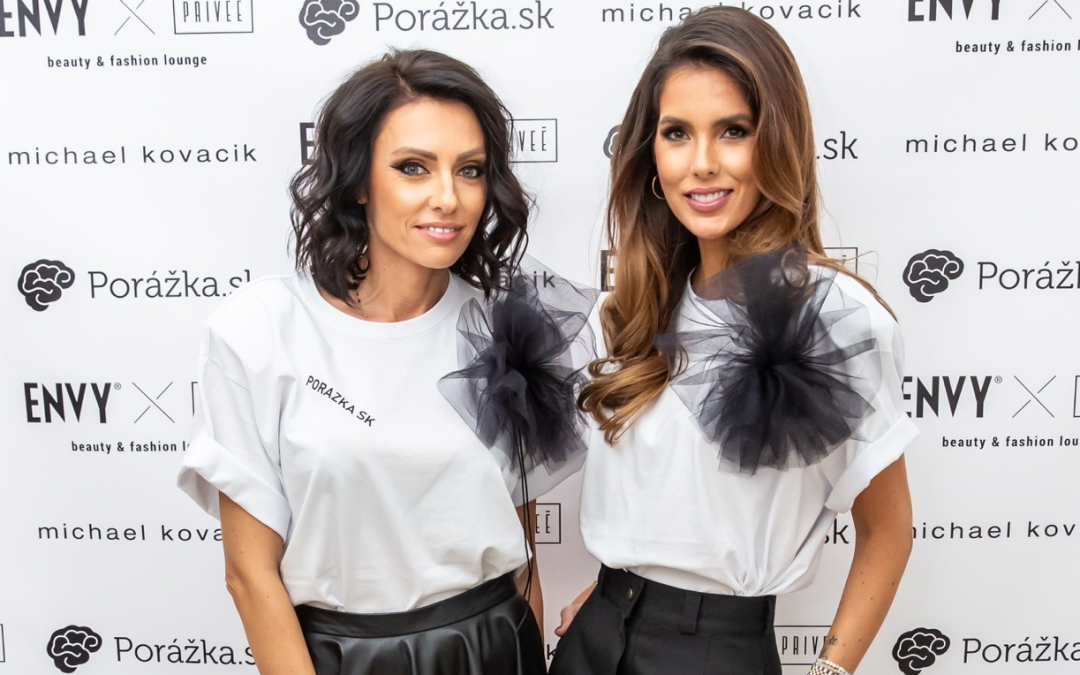
Nov 14, 2019
Written by Alžbeta Husarovič, President of Porážka.sk
For this year’s World Stroke Day in Slovakia, a stroke support organisation Porážka.sk and a fashion stylist Andrej Kusalík organised a Charity Fashion Show. The event took place on 24th October 2019 in the Privee Lounge in Motešických Palace, in Bratislava, Slovakia.
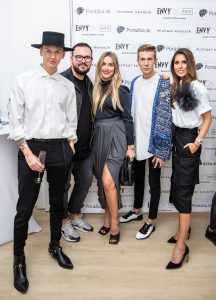 A successful Slovakian fashion designer Michael Kováčik created a T-shirt “Unbeaten” in three different outlooks for the Porážka.sk. These T-shirts were presented on a runway by Slovakian models and previous participants of the Miss Slovakia – Barbora Franeková, Magdaléna Šebestová, Eva Rezešová and Simona Brnová Slobodníková.
A successful Slovakian fashion designer Michael Kováčik created a T-shirt “Unbeaten” in three different outlooks for the Porážka.sk. These T-shirts were presented on a runway by Slovakian models and previous participants of the Miss Slovakia – Barbora Franeková, Magdaléna Šebestová, Eva Rezešová and Simona Brnová Slobodníková.
The main idea of the event was to auction money for the support of the Porážka.sk, with special focus on coveing treatment costs Peter Tatarko, an engineer who survived stroke in May 2018.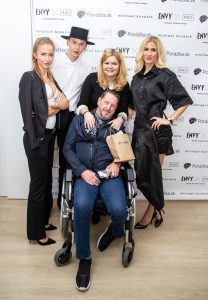
The main voice of the evening belonged one of TV moderators JOJ Lucia Wirthová. Apart from these designed T-shirts, the auction included a work of art by the academic painter Daniel Bidelnica and a painting by his wife Maria Bidelnicová as well. In addition to these two artworks also auctioned designer’s piece by Michael Kováčik, based on the auctioneer’s choice.
The evening was very successful and managed to auction around 6.500 EUR. The event was supported by leading bidders, celebrity photographer Petra Ficová, owner of Envy Lounge, Natalia Selveková and two anonymous auctioneers.
During the evening, the T-shirts were sold, bringing an additional sum of 800 EUR to Porážka.sk.
These beautifully designed T-shirts will continue to be sold on OZ Porážka.sk website www.porazka.sk, via Porazka.sk social media and on Zľavomat website, www.zlavomat.sk.
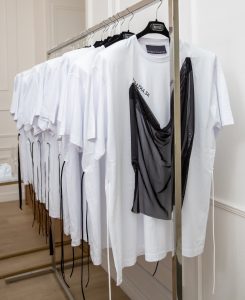
The funding that was generated through all of these activities will mainly be used for the treatment of Peter Tatarko, who overcame the defeat in May 2018. The treatment is expected to last for three intensive weeks. The cost of treatment is 3.500 EUR and Porážka.sk is very glad that it can help people through activities like this.
At the end, we would like to pass our massive thank you to everyone who participated and helped us raise the money. If you want to support our further work, please visit our website www.porazka.sk and purchase one of our beautiful T-shirts, knowing that you will not only get a very fashionable piece of clothing, but also help us continue with our very important work. Your purchase will be used for improvement of the lives of the stroke survivors in Slovakia.
A piece of the atmosphere at the event
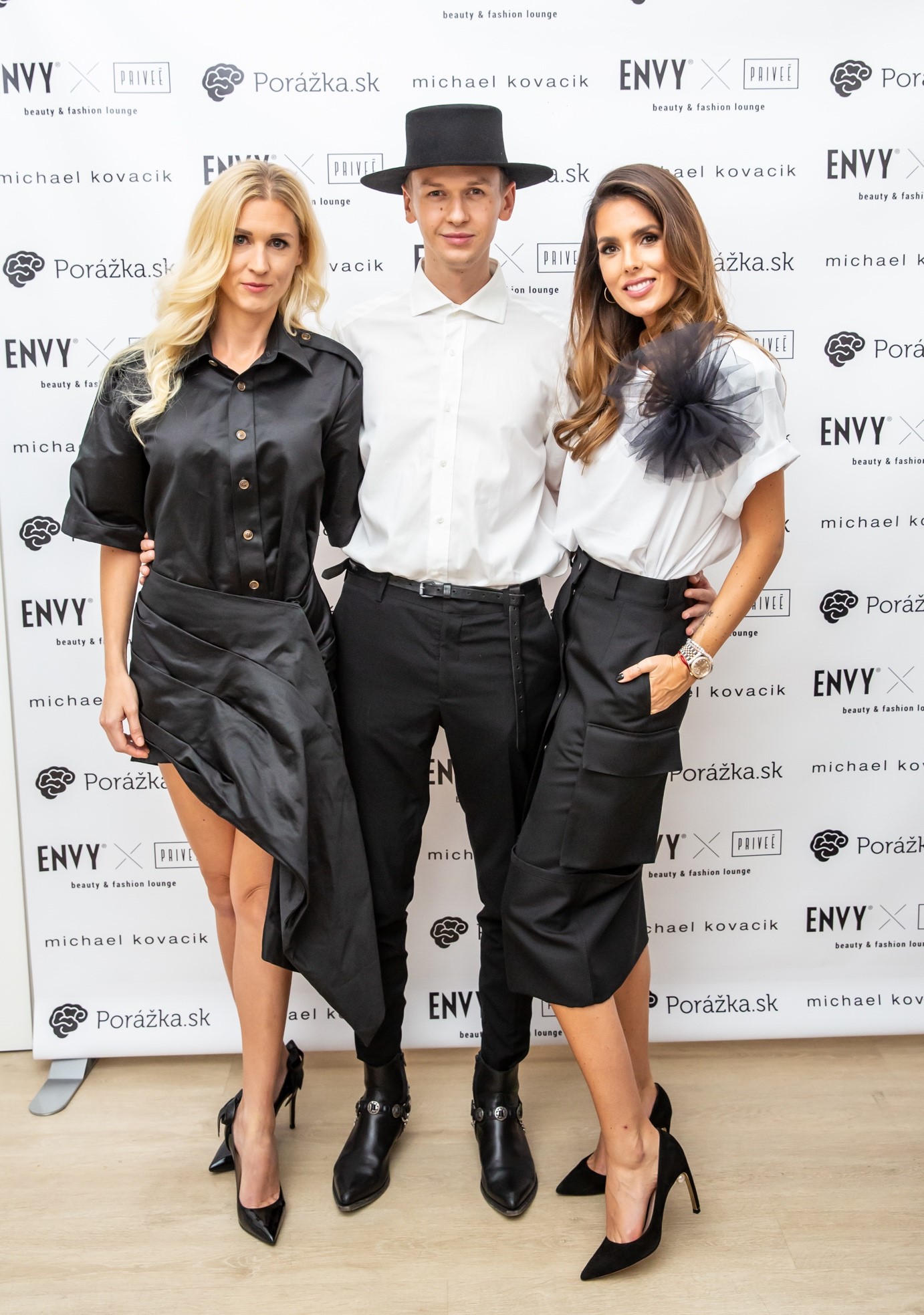
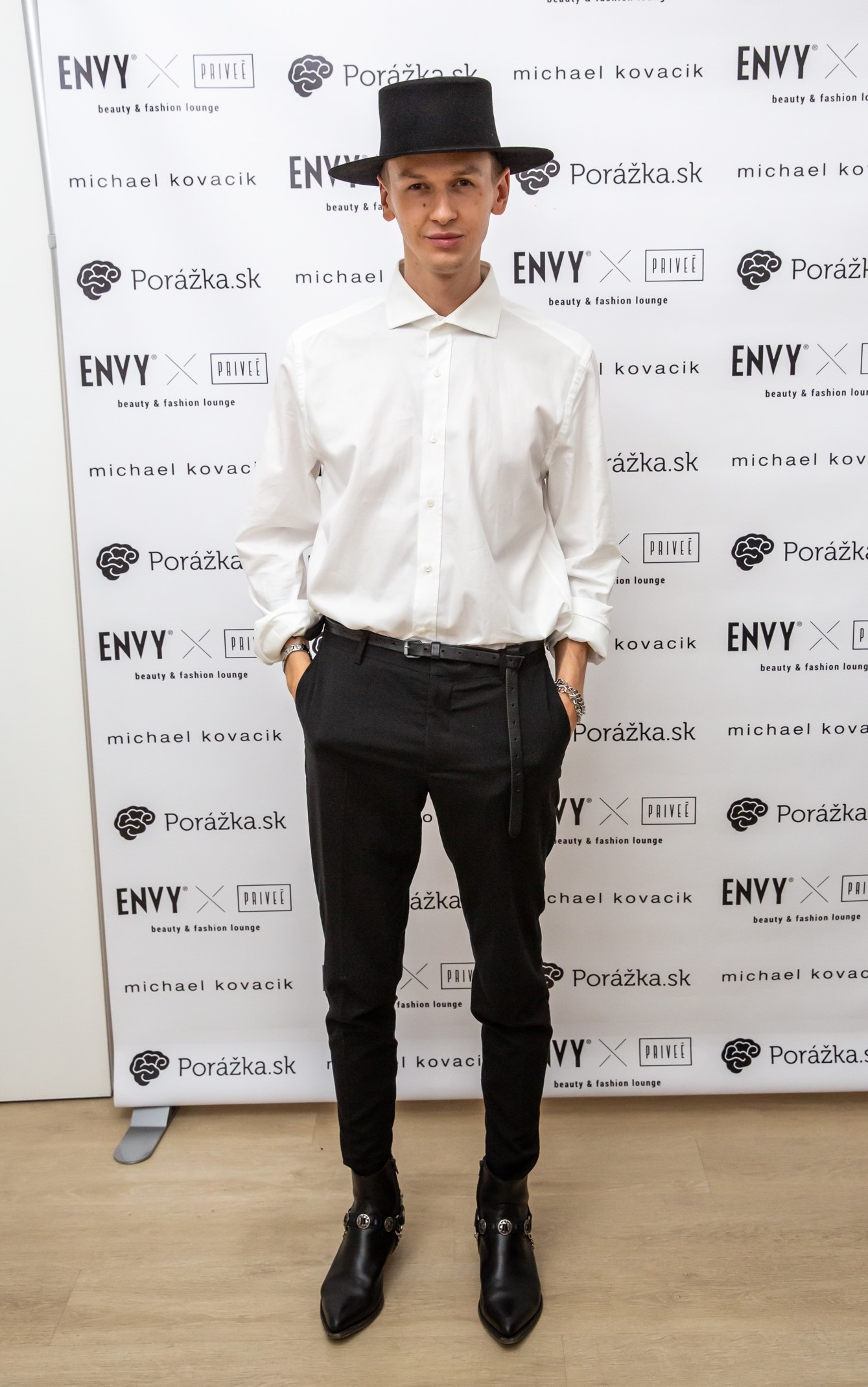
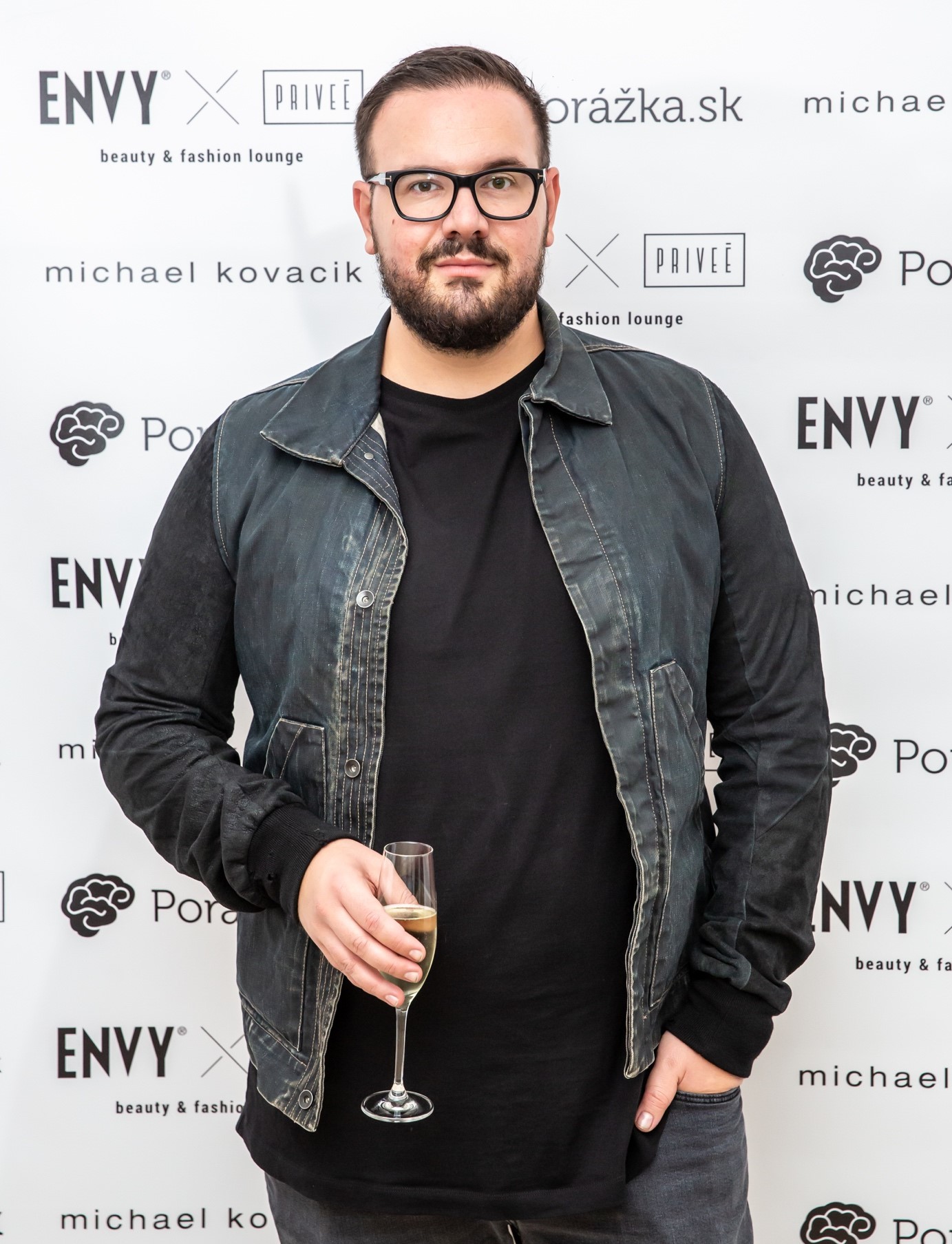
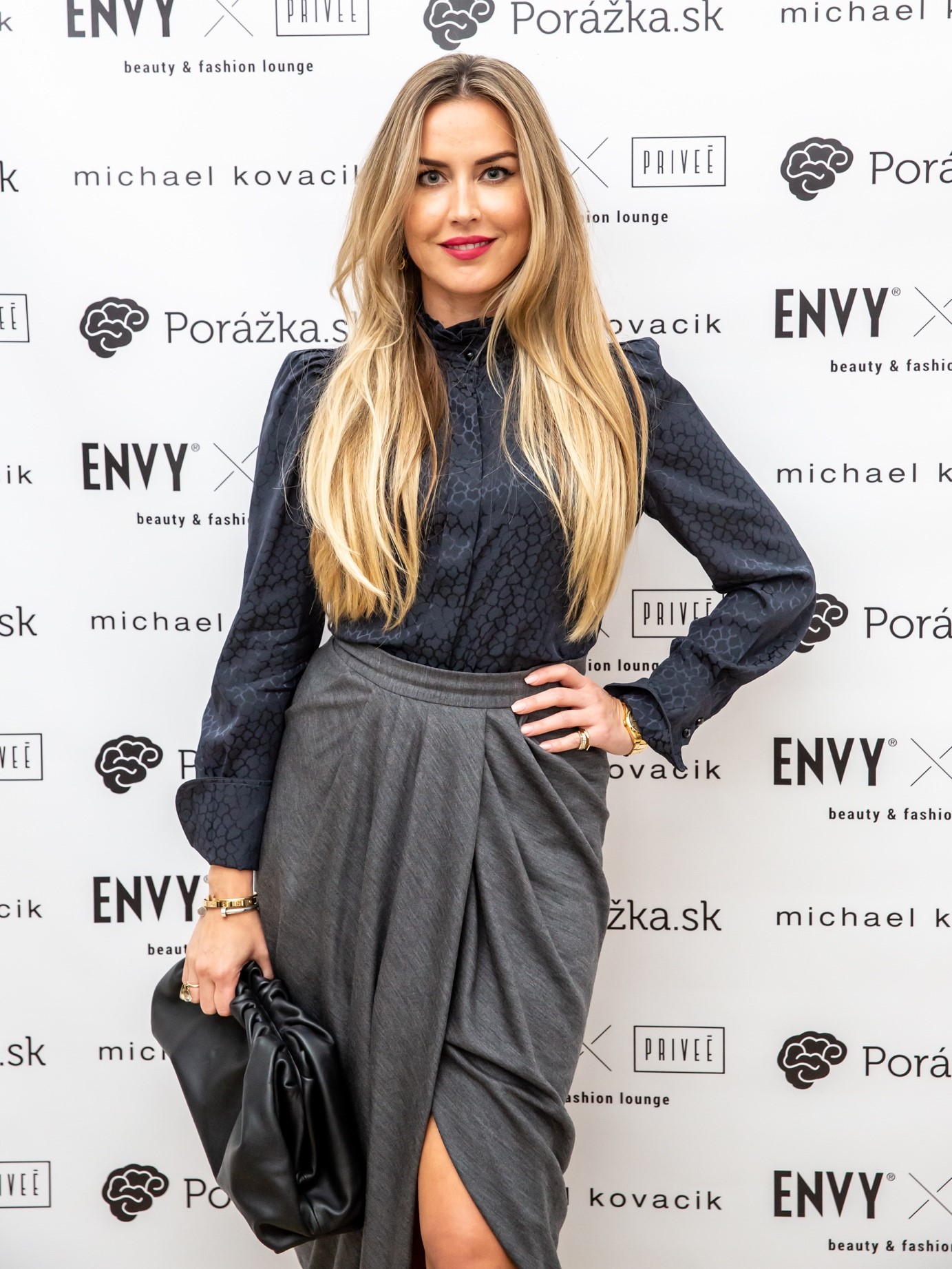
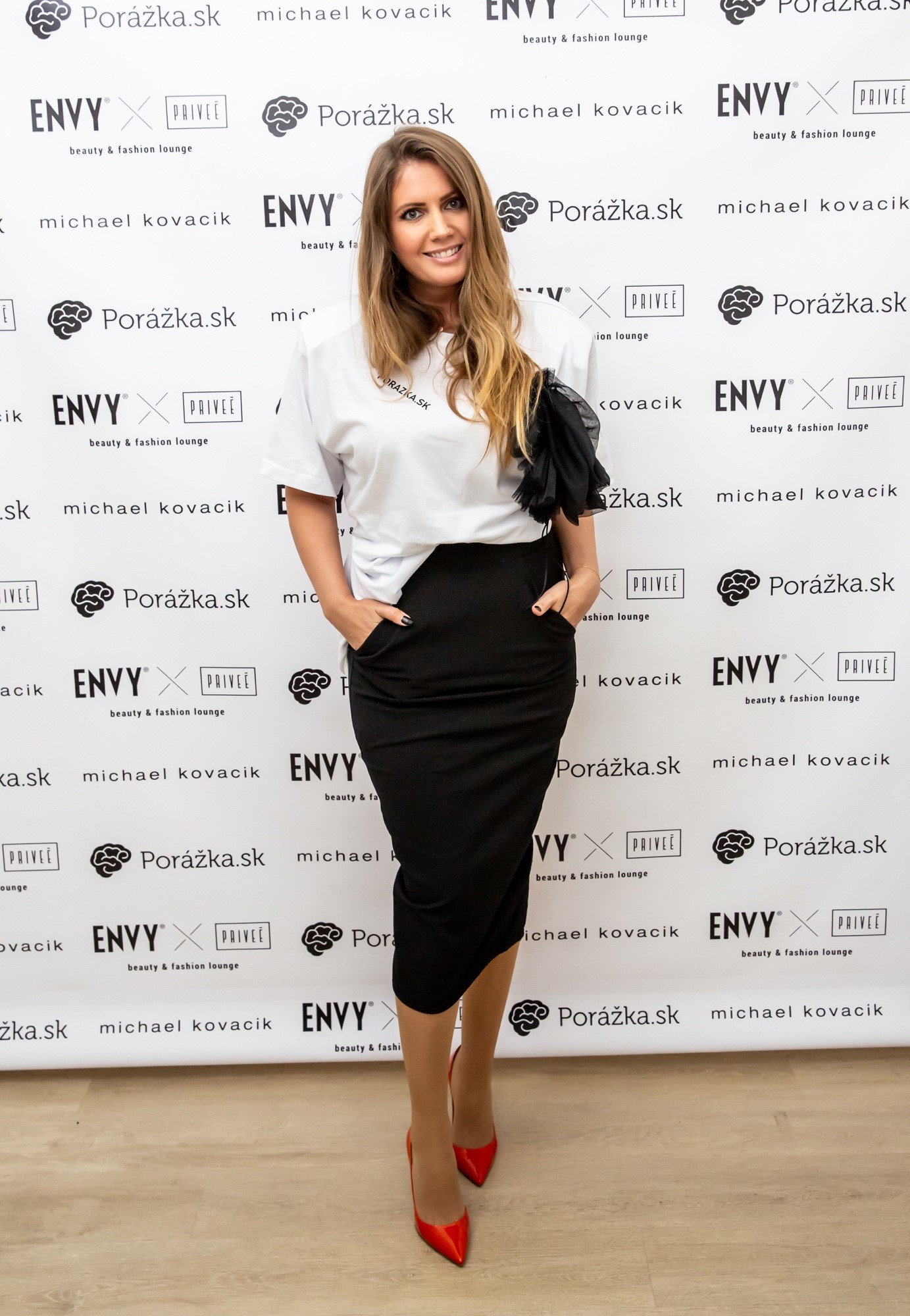
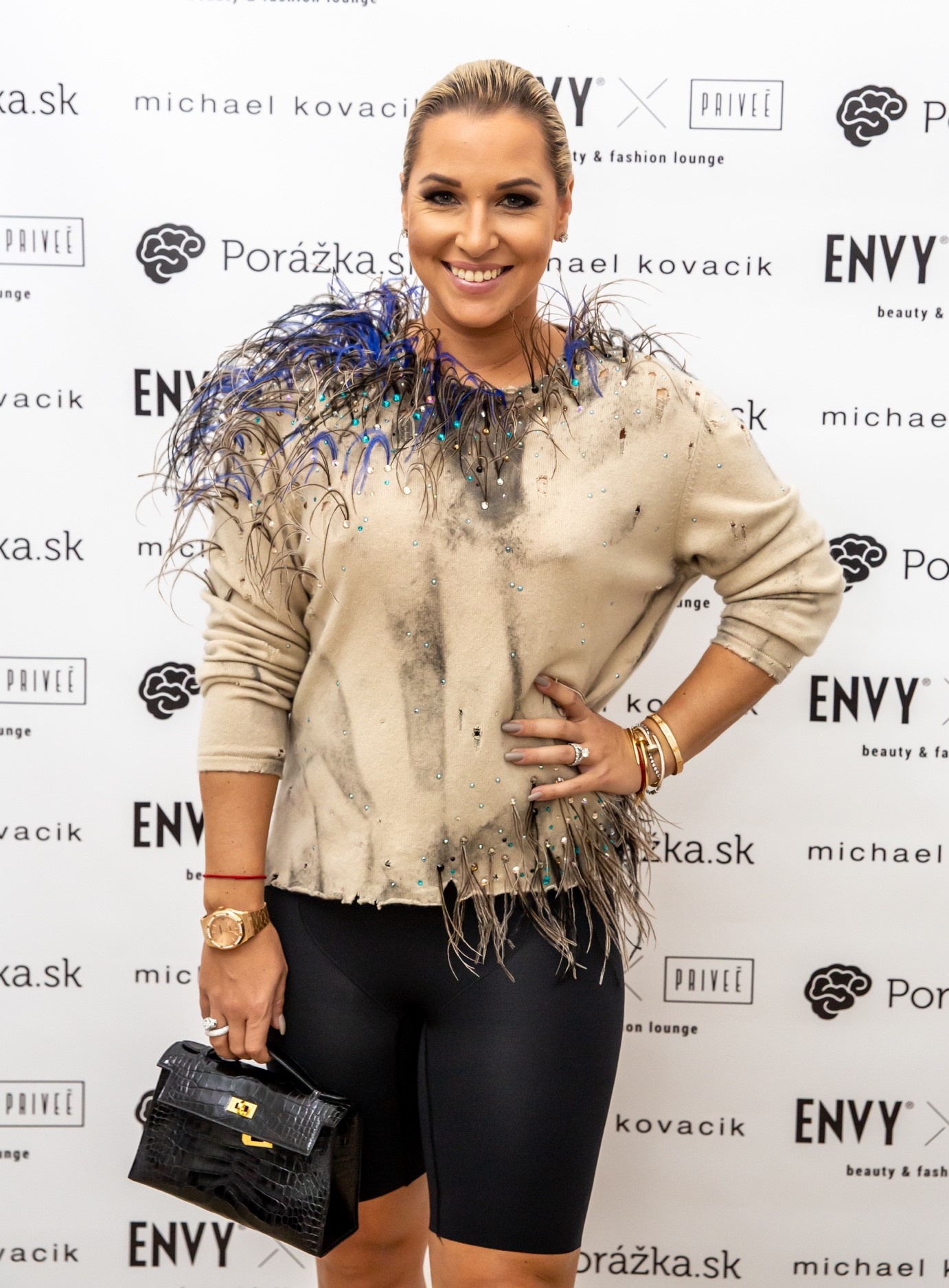
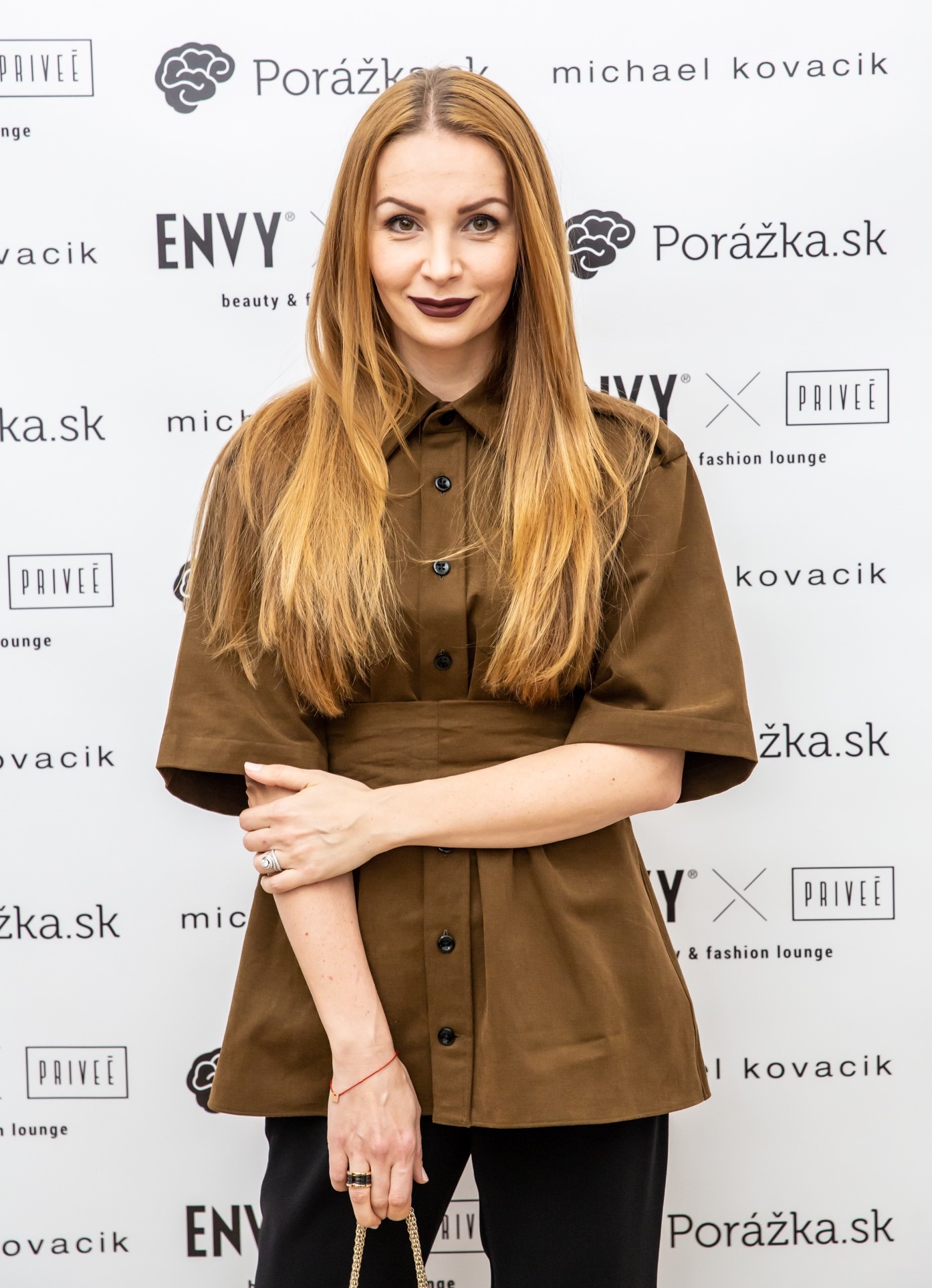
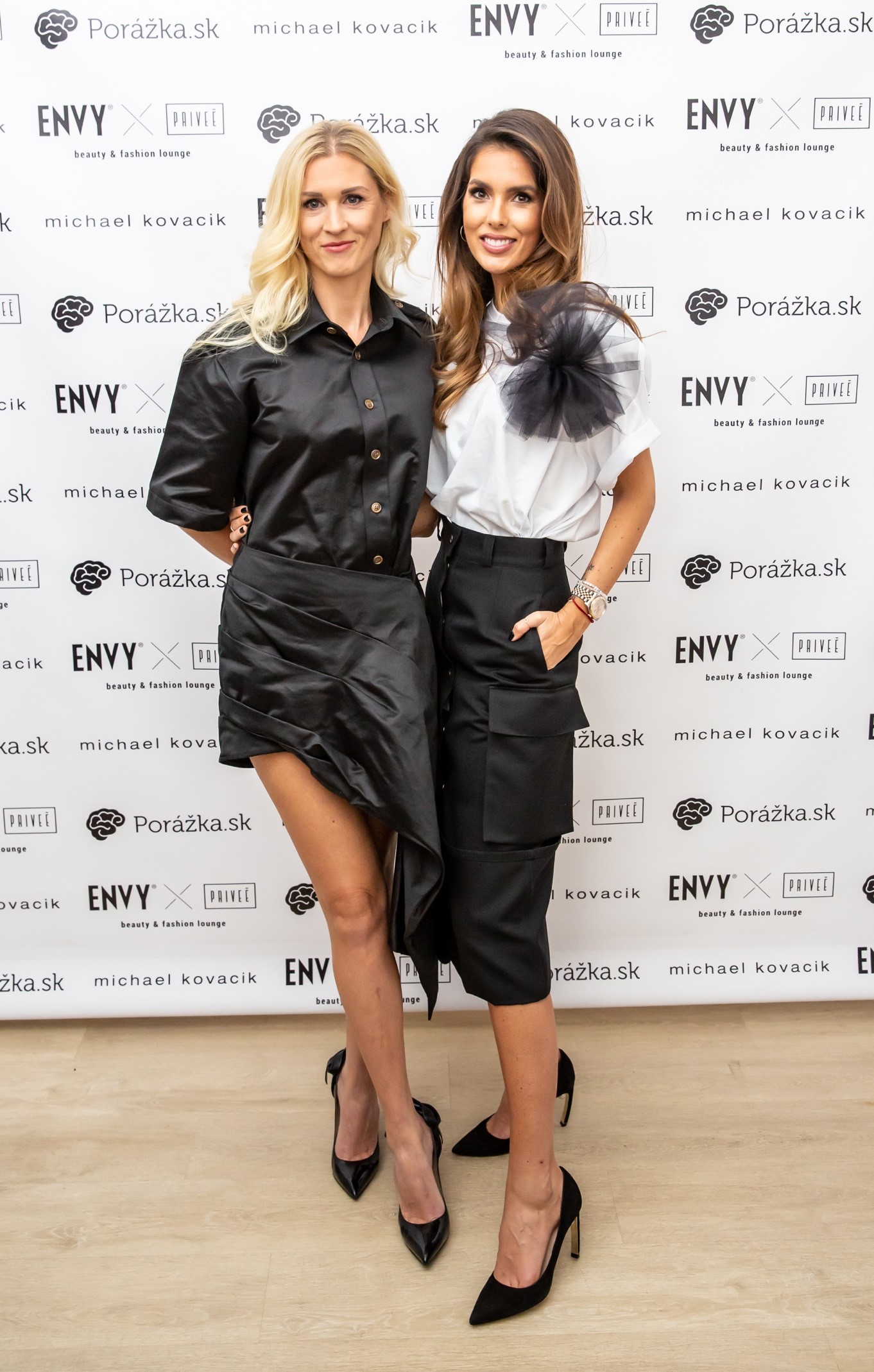
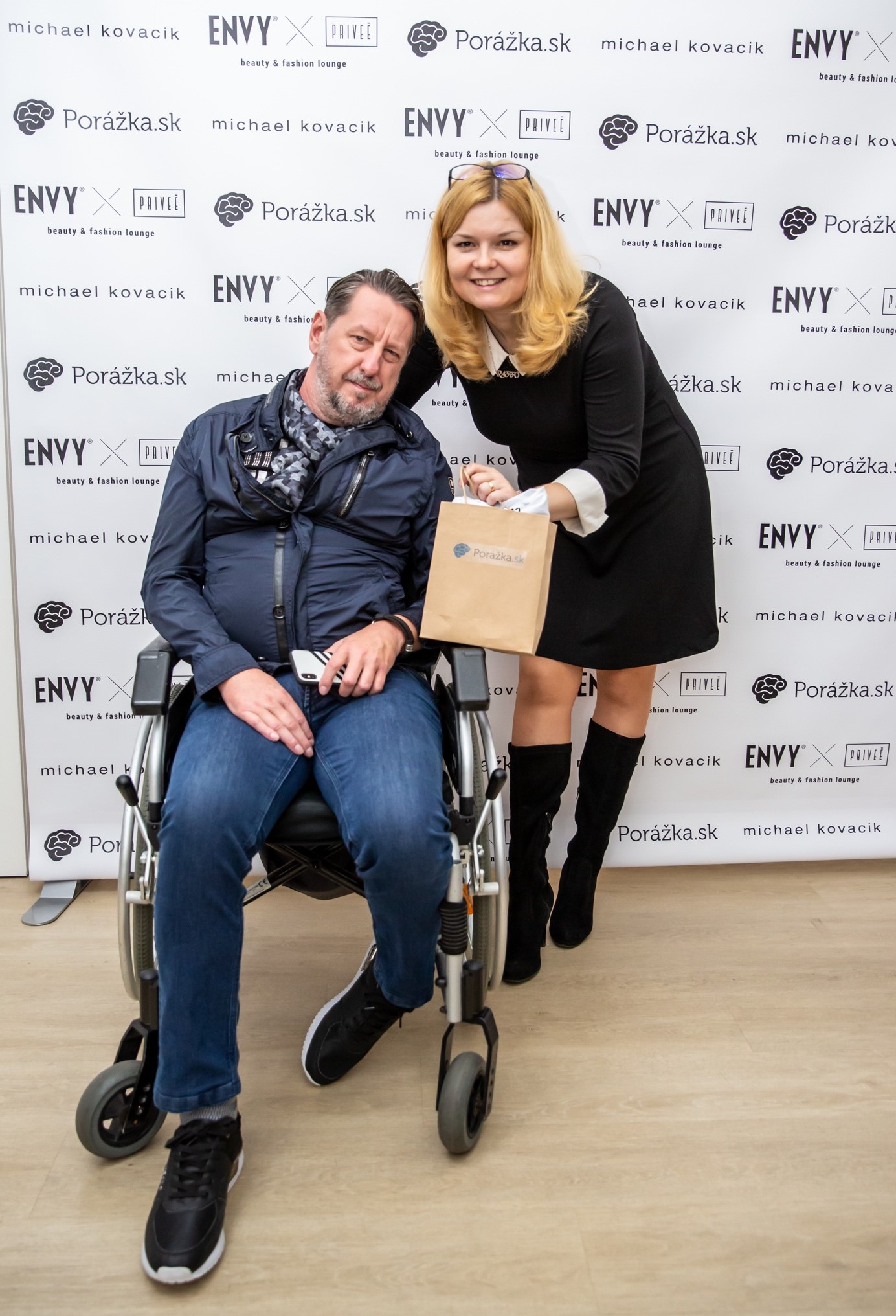

Oct 29, 2019
Today is the World Stroke Day and the global campaign’s slogan is „1 in 4 of us will have a stroke. #DontBeTheOne“.
SAFE supports the global campaign, as we do every year. At the same time, we recognise and acknowledge the struggle of those among us who were unlucky enough to become #theOne from the World Stroke Day slogan.
We represent the voice of stroke survivors and their families through Europe.
Believing that all these voices must be heard, SAFE organised a series of interviews with the stroke support organisation representatives from around 30 European countries. Today we are able to present you with their unique insight into life after stroke issues, country by country.
We hope you would help us spread the news and share these country insights. Click HERE to open and download the compilation of interviews with key people from European stroke support organisations.
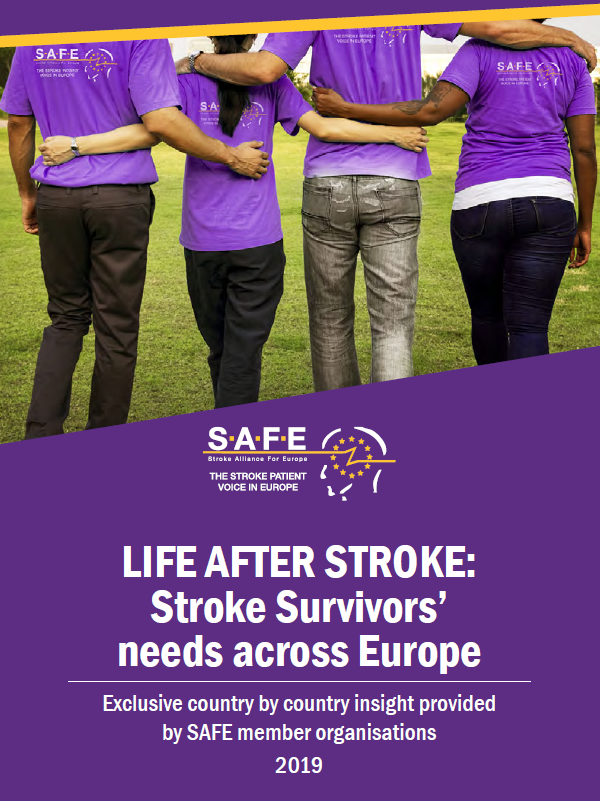
Page 2 of 10«12345...10...»Last »




 How will my child develop? How will it do in Kindergarten or school? How do we cope with social challenges and which therapies are best with for our child? The diagnosis “stroke” raises many questions – especially when a child is affected. The three day “Summer Camp” offered families with a child affected by stroke an opportunity for an informative and fun-filled weekend. Experts answered questions, psychologists helped developing new perspectives, singer Patricia Kelly gave an exclusive concert and former world-class Wrestler Alexander Leipold offered sport-activities for the children.
How will my child develop? How will it do in Kindergarten or school? How do we cope with social challenges and which therapies are best with for our child? The diagnosis “stroke” raises many questions – especially when a child is affected. The three day “Summer Camp” offered families with a child affected by stroke an opportunity for an informative and fun-filled weekend. Experts answered questions, psychologists helped developing new perspectives, singer Patricia Kelly gave an exclusive concert and former world-class Wrestler Alexander Leipold offered sport-activities for the children. A stroke affects every aspect of life. Young survivors are even in a special situation. They want to return to work, build or maintain relationships and live an independent life – which is not always possible. In a four-day workshop they had the opportunity to talk to psychologists and doctors and to exchange their own experiences. Word-class Mountainbiker Peter Schermann talked about his return into sports after his stroke.
A stroke affects every aspect of life. Young survivors are even in a special situation. They want to return to work, build or maintain relationships and live an independent life – which is not always possible. In a four-day workshop they had the opportunity to talk to psychologists and doctors and to exchange their own experiences. Word-class Mountainbiker Peter Schermann talked about his return into sports after his stroke.



 Not many people know that children can have a stroke. Even experts like podiatrists or therapists often don’t have sufficient information about the topic. The German Stroke Foundation wants to change this by inviting experts to learn more about child stroke. More than 40 doctors and other experts met in Bavaria in 2019.
Not many people know that children can have a stroke. Even experts like podiatrists or therapists often don’t have sufficient information about the topic. The German Stroke Foundation wants to change this by inviting experts to learn more about child stroke. More than 40 doctors and other experts met in Bavaria in 2019.

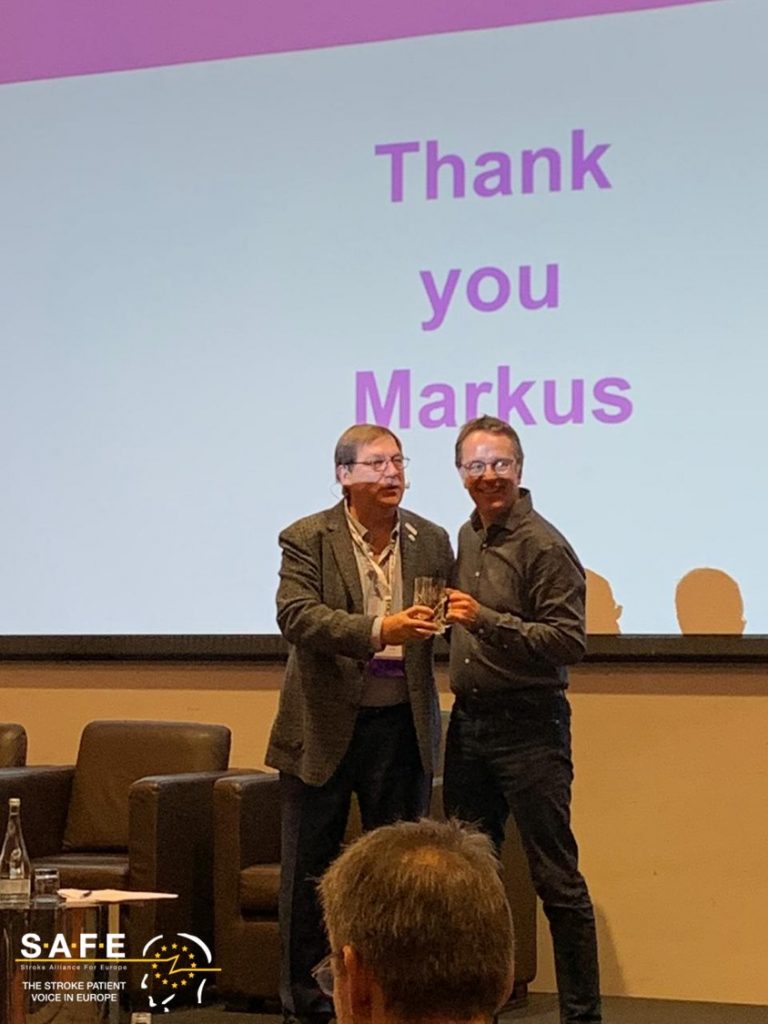

 A successful Slovakian fashion designer Michael Kováčik created a T-shirt “Unbeaten” in three different outlooks for the Porážka.sk. These T-shirts were presented on a runway by Slovakian models and previous participants of the Miss Slovakia – Barbora Franeková, Magdaléna Šebestová, Eva Rezešová and Simona Brnová Slobodníková.
A successful Slovakian fashion designer Michael Kováčik created a T-shirt “Unbeaten” in three different outlooks for the Porážka.sk. These T-shirts were presented on a runway by Slovakian models and previous participants of the Miss Slovakia – Barbora Franeková, Magdaléna Šebestová, Eva Rezešová and Simona Brnová Slobodníková.















